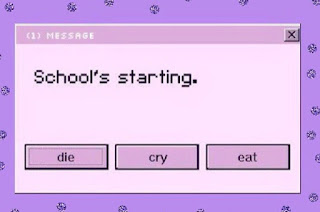There's a common misconception that if you want to meticulously arrange your things, keep your hands clean, or plan out your weekend to the last detail, you are OCD. In fact, OCD (Obsessive Compulsive Disorder) is a critical psychiatric condition this is often misunderstood by a lot of people.
In my earlier post(Check it out here!), I spoke about how people seem to "romanticize" OCD and just proclaim having it without knowing what it really is.
A lot of you texted me saying that I should do a post on quashing OCD myths so let's get to it :)
Number One:
A common sign of OCD is an obsession with cleanliness — which includes continuously washing your palms or excessively cleansing household items. But a cleanliness complex can also be a character trait. If it’s a personality trait, you've got got control — you could select to do it or not. If you have obsessive compulsive disorder, you’re doing it out of unrelenting debilitating anxiety. The difference needs to be understood.
Number Two:
Having OCD isn't always simply an overreaction to the stresses of life. While traumatic conditions could make matters worse for human beings with OCD, they do not cause OCD. People with OCD face severe, often debilitating tension over any wide variety of matters, called “obsessions.” This degree of intense fear and worry may be so overwhelming that it gets in the way in their ability to function.
To strive to triumph over this tension, human beings with OCD use “compulsions” or rituals, which can be unique moves or behaviours. These compulsions aren't sports someone with OCD does due to the fact they need to, however alternatively due to the fact they experience they should a good way to ease their fears. OCD isn't always approximately logic — it's far approximately tension and seeking to get alleviation from that tension.
Number Three:
Not all compulsions are visible. Mental compulsions consist of behaviours achieved inside one’s mind. They can also additionally consist of praying, counting, repeating a phrase, or warding off precise thoughts. A person who appears distracted to others can be very centred on mental compulsions.
Even when a person’s compulsions are physical, others might not see them. People with OCD frequently feel ashamed of their symptoms. They can also additionally keep away from doing compulsions in public, even if the postpone causes excessive anxiety.
Number Four:
People may equate OCD as a stress response, thinking that if an character burdened much less, they could be much less stricken by their OCD. However, OCD is an uncontrollable anxiety and those have numerous issues preventing their compulsions. Stress could make OCD signs and symptoms worse, however it does not cause the disease.
Number Five:
OCD is a extreme condition with a neurobiological cause. And while it’s true that Type-A personality traits includes being controlling and inflexible, they don’t encompass a debilitating preoccupation with repetitive obsessions and compulsive behaviours.
Okay! That was it for today. Hope you guys enjoyed reading about as I much as I enjoyed writing it. Don't forget to share and subscribe and drop of some suggestions below if you have any!
Signing off,
Kuhu :)










I love this- you debunked so many of the myths and stigmas surrounding OCD in a great way :D
ReplyDeleteThank you so much! Glad I could help :)
Delete